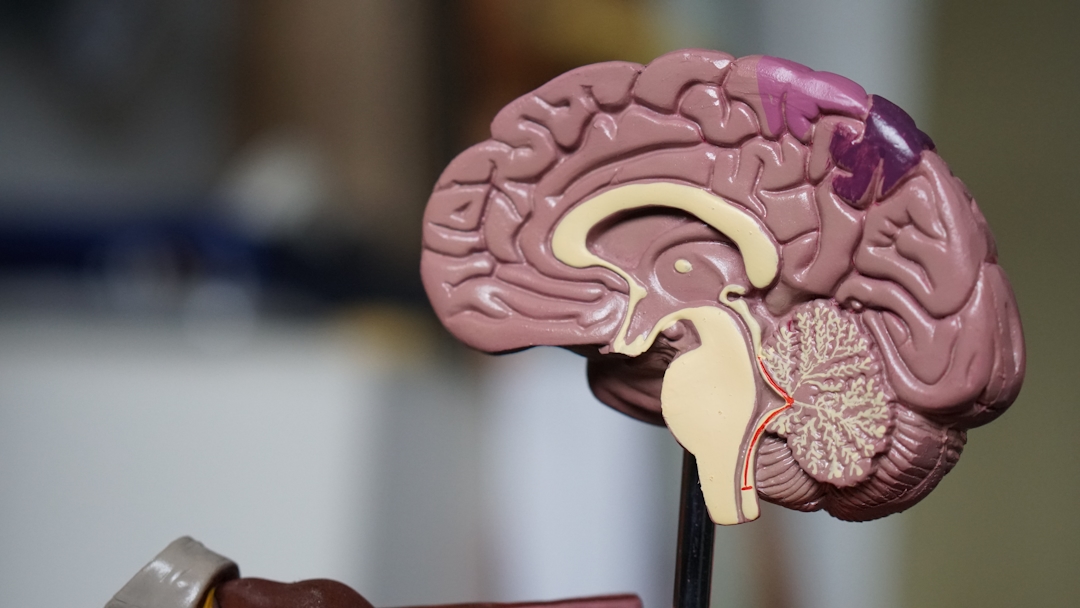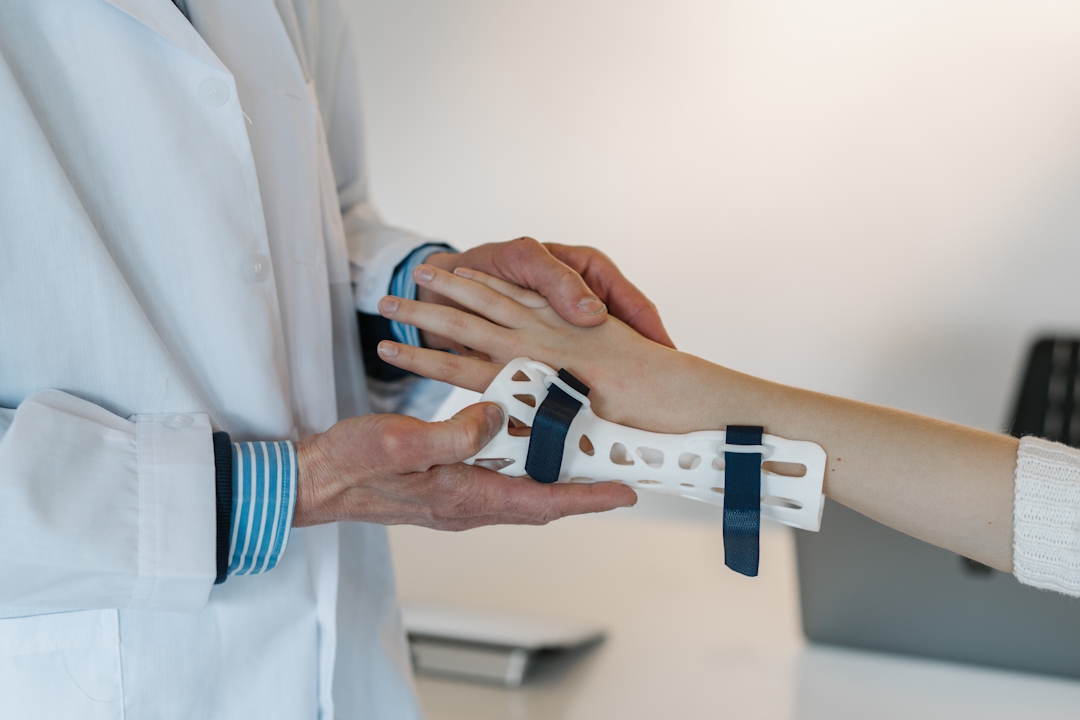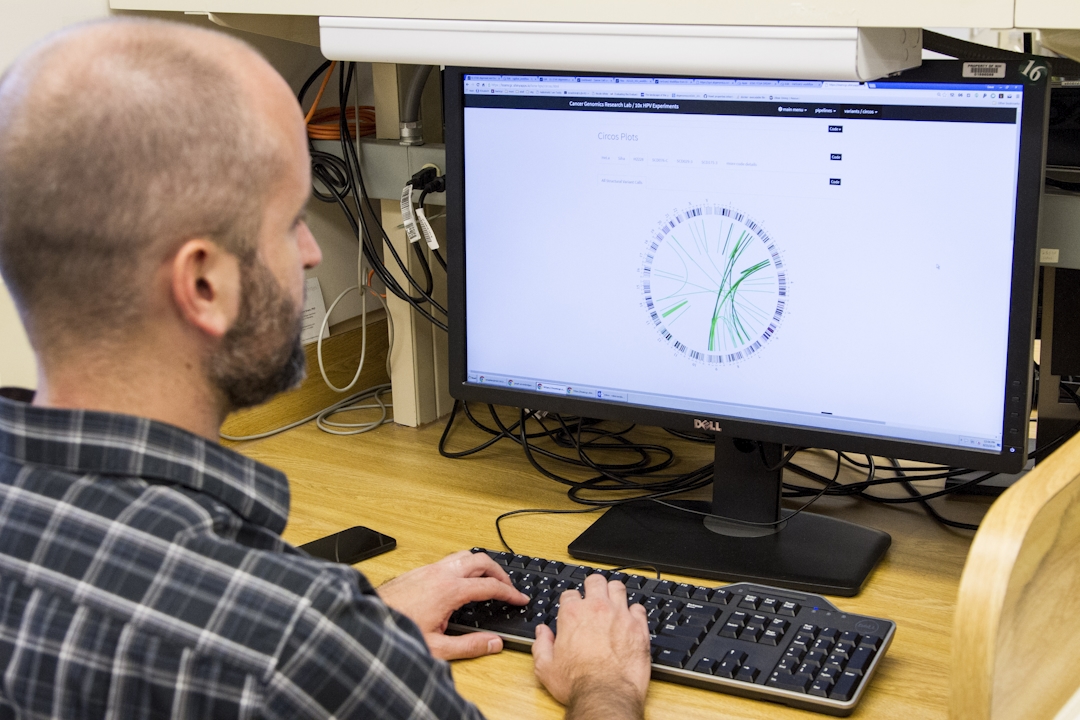
AI in Medicine: Transforming Diagnostics and Treatment Planning
Explore how AI revolutionizes medical diagnostics and treatment plans, enhancing accuracy and personalization in patient care.

Audio Summary
Key Takeaways
- AI enhances diagnostic accuracy and speed in healthcare
- AI enables personalized treatment planning for better patient outcomes
- Ethical considerations are crucial in AI-driven healthcare implementation
- AI serves as a powerful tool to augment human expertise in medicine
- Ongoing collaboration is essential to balance AI's potential with ethical concerns in healthcare
The Transformative Impact of AI on Healthcare
Artificial Intelligence (AI) is revolutionizing healthcare remarkably, much like how smartphones have transformed communication. This powerful technology enables computers to learn and make decisions and is now being applied to complex medical tasks. AI's ability to analyze vast amounts of medical data faster and more accurately than humans is helping doctors make better decisions about patient care. Its applications in healthcare are wide-ranging: Interpreting medical images, Predicting health risks, Assisting in diagnosis, and planning personalized treatments. As we explore this exciting frontier, it's crucial to understand how AI is reshaping healthcare and what it means for both patients and medical professionals. This new era of AI in medicine promises: More accurate diagnoses, Personalized treatment plans, and improved health outcomes globally. By leveraging AI technology, healthcare providers can offer patients more efficient, precise, and tailored care worldwide. As AI continues to advance, it is poised to become an invaluable tool in modern medicine, potentially transforming the healthcare landscape for generations to come.

AI's Impact on Medical Diagnosis
Artificial Intelligence (AI) is revolutionizing medical diagnosis, bringing unprecedented accuracy and speed to the process. AI systems can analyze vast amounts of medical data, including medical images, lab results, and patient histories. This rapid analysis helps identify patterns and anomalies that might be missed by the human eye, often in a fraction of the time it would take a human doctor.
Key Advantages of AI in Diagnosis
- Early Detection: AI algorithms can detect subtle signs of diseases in medical images, sometimes spotting issues before they become visible to radiologists.
- Improved Accuracy: In breast cancer screening, AI has shown promise in reducing false positives and negatives, potentially saving lives through earlier detection.
- Comprehensive Analysis: AI excels at integrating information from various sources, providing a more holistic view of a patient's health.
- Complex Case Diagnosis: This capability is particularly valuable in diagnosing complex or rare conditions where symptoms may be easily overlooked.
- 24/7 Availability: AI-powered diagnostic tools are available round-the-clock, potentially reducing wait times for patients and easing the burden on healthcare systems.
- Continuous Improvement: As these systems learn from more data, their accuracy continues to improve, making them invaluable partners to human medical professionals.
While AI enhances diagnostic capabilities, it's important to note that it doesn't replace human doctors. Instead, it serves as a powerful tool, augmenting human expertise and enabling more informed, accurate, and timely diagnoses. As AI continues to evolve, its role in medical diagnosis is likely to expand, promising a future of more efficient and effective healthcare delivery.

Personalized Treatment Planning with AI
Artificial Intelligence (AI) is revolutionizing patient care by enabling highly personalized treatment planning. AI algorithms analyze a patient's unique characteristics to create tailored treatment plans, including genetic makeup, medical history, lifestyle factors, and environmental influences.
This level of personalization surpasses traditional one-size-fits-all approaches, offering more effective and targeted care.
Key Applications of AI in Treatment Planning
- Precision Medicine in Cancer Treatment: AI helps oncologists determine the most effective combination of therapies based on the specific genetic profile of a patient's tumor. This approach increases the likelihood of successful treatment and potentially reduces side effects
- Medication Selection: AI excels at predicting patient responses to different medications, helping doctors choose the most effective drugs, and minimizing the risk of adverse reactions
- Chronic Disease Management: AI-powered systems continuously monitor patient data and suggest real-time adjustments to treatment plans, allowing for More responsive care, and potential prevention of complications before they arise.
- Personalized Rehabilitation: AI assists in creating customized rehabilitation plans for patients recovering from injuries or surgeries by adapting programs based on patient progress, and tailoring exercises to individual needs
Some Benefits of AI-enhanced treatment planning are more informed decision-making by healthcare providers, better patient outcomes, quicker processing of vast arrays of factors, and dynamic and responsive care approaches. While AI significantly enhances treatment planning, it's crucial to remember that the human touch in healthcare remains irreplaceable. AI serves as a powerful tool to support, not replace, the expertise of medical professionals. As AI technology continues to advance, the future of personalized medicine looks increasingly promising, offering patients more effective, tailored, and responsive care.

Ethical Considerations of AI in Healthcare
As Artificial Intelligence (AI) becomes increasingly prevalent in healthcare, it raises important ethical considerations that require careful attention. Addressing these concerns is crucial for the responsible development and implementation of AI in healthcare, ensuring that this powerful technology benefits all patients while respecting fundamental human rights and values.
Key Ethical Concerns
Patient Privacy and Data Security: AI systems require vast amounts of sensitive medical data, raises questions about data collection, storage, and usage, and necessitates balancing improved care with individual privacy rights
- Algorithmic Bias: AI trained on non-diverse data may produce less accurate results for certain groups, and potential to exacerbate existing healthcare disparities.
- Transparency and the 'Black Box' Problem: Healthcare providers and patients need to understand AI decision-making processes, and lack of clarity in AI reasoning poses challenges in a field where understanding decisions is crucial.
- Accountability: Uncertainty regarding responsibility for AI mistakes, and potential liable parties include developers, healthcare providers, and institutions using the system
- Impact on Doctor-Patient Relationships: Concern about depersonalization of healthcare experience, and the need to maintain empathy in patient interactions alongside AI integration
- Equitable Access: Ensuring advanced AI-driven healthcare technologies are available to all patients, and addressing socioeconomic barriers to access.
Addressing Ethical Challenges
- Develop robust data protection protocols and transparent data usage policies
- Ensure diverse and representative datasets for AI training
- Promote explainable AI systems in healthcare applications
- Establish clear guidelines for AI accountability in medical settings
- Emphasize AI as a tool to enhance, not replace, human care and empathy
- Implement policies to promote equitable access to AI-driven healthcare technologies
By proactively addressing these ethical considerations, the healthcare industry can harness the benefits of AI while maintaining trust, fairness, and human-centered care. Ongoing dialogue and collaboration between technologists, healthcare professionals, ethicists, and policymakers will be essential in navigating these complex issues.

Conclusion
Artificial Intelligence (AI) is revolutionizing the healthcare industry, particularly in the areas of diagnosis and treatment planning. This powerful technology serves as an invaluable assistant to medical professionals, significantly enhancing their ability to deliver accurate and personalized care. One of the key benefits of AI in healthcare is its ability to enhance diagnosis. AI rapidly analyzes vast amounts of medical data, including X-rays, other medical images, patient histories, and lab results. This comprehensive analysis helps identify patterns and anomalies that may be overlooked by humans, leading to more accurate diagnoses.
In addition to improved diagnostics, AI also plays a crucial role in developing personalized treatment plans. By tailoring treatment strategies to each patient's unique profile, AI considers factors such as genetic makeup, lifestyle, medical history, and environmental influences. This personalized approach has the potential to improve treatment outcomes and reduce side effects, offering a more individualized healthcare experience.
However, the rise of AI in healthcare is not without ethical considerations. It is crucial to address concerns related to patient privacy, ensuring that sensitive medical data is safeguarded. Additionally, fairness must be prioritized to ensure that AI systems are unbiased and equitable for all patients. Maintaining empathy and a personal connection in healthcare is also essential, ensuring that the human touch is not lost in the increasing reliance on technology.
As AI continues to evolve in medicine, it is paramount to strike a balance between its potential and ethical use. The future of healthcare looks promising with AI as a powerful tool, but its implementation must be approached with wisdom and ethical consideration. To fully harness AI's benefits in healthcare, ongoing collaboration between technologists, medical professionals, ethicists, and policymakers is essential. This cooperation will help ensure that AI enhances rather than replaces the human element in healthcare, leading to a future where technology and compassion work hand in hand to improve patient outcomes and experiences.
References
- Revolutionizing healthcare: the role of artificial intelligence in clinical practice. PubMed. https://www.ncbi.nlm.nih.gov/pmc/articles/PMC10517477/
- Nicole Singleton. AI in Medicine: Transforming Patient Treatment and Care. Thoughtful. https://www.thoughtful.ai/blog/ai-in-medicine-transforming-patient-treatment-and-care
- Advancing Patient Care: How Artificial Intelligence Is Transforming Healthcare. MDPI. https://www.mdpi.com/2075-4426/13/8/1214
- Junaid Bajwa, Usman Munir, Aditya Nori, Bryan Williams. Artificial intelligence in healthcare: transforming the practice of medicine. PubMed. https://www.ncbi.nlm.nih.gov/pmc/articles/PMC8285156/

Related Blog Content

Precision Medicine: Revolutionizing Patient Care Through Personalized Treatments
Discover how precision medicine tailors treatments to individual genetic profiles, transforming healthcare with targeted therapies and improved outcom
Read More
Telemedicine: Bridging Healthcare Gaps with Virtual Consultations
Explore how telemedicine enhances healthcare access, providing virtual consultations to bridge gaps in patient care.
Read More
Gene Therapy: Rewriting DNA to Cure the Incurable
Explore how gene therapy revolutionizes medicine, offering hope for previously untreatable genetic disorders and complex diseases.
Read MoreReady to optimize your biology?
Nutritionaly is free to start. Build better habits, unlock insights, and watch your Bio-Score rise.